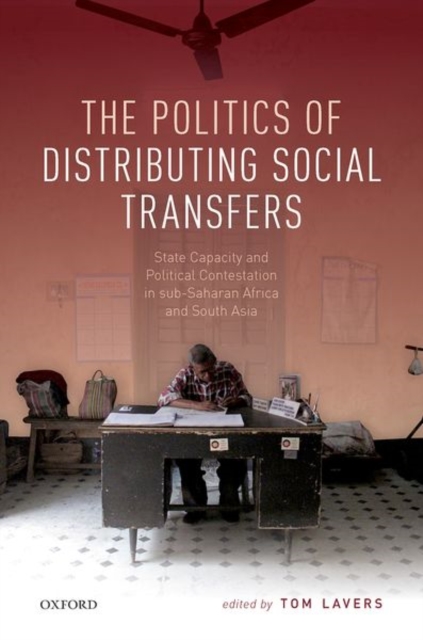
The Politics of Distributing Social Transfers Hardback
Edited by Tom (Senior Lecturer in Politics and Development, Senior Lecturer in Politics and Developmen Lavers
Hardback
Description
This is an open access title available under the terms of a CC BY-NC-ND 4.0 International licence.
It is free to read at Oxford Scholarship Online and offered as a free PDF download from OUP and selected open access locations. The Politics of Distributing Social Transfers in Sub-Saharan Africa and South Asia provides a systematic analysis of the political processes shaping the distribution of social transfers in six countries in Sub-Saharan Africa and South Asia.
In doing so, the book addresses a notable gap in recent research on social protection concerning the politics of implementation.
While considerable attention has been devoted to debating the merits of different policy designs and the political factors shaping the adoption and diffusion of different policy models, ultimately the ability of any social transfer programme to deliver on its promises is dependent on the effective implementation and distribution of social transfers in line with intended objectives.
The chapters in this book examine international and sub-national variation in programme implementation in Bangladesh, Ethiopia, Ghana, Kenya, Nepal, and Rwanda, drawing on a common analytical framework that highlights the importance of state capacity and reach, rooted in histories of state formation, and contemporary political competition in shaping the distribution of social transfers.
Comparative analysis of the case studies supports the view that variation in the capacity and reach of the state within countries is a centrally important factor shaping the effectiveness and impartiality of distribution.
Yet state capacity alone is insufficient. Rather political competition and power relations shape how this capacity is actually deployed in practice.
As such, the book underscores the inherently political nature of implementation and questions common technocratic efforts to improve implementation by de-politicizing the social protection policy process.
Information
-
Available to Order - This title is available to order, with delivery expected within 2 weeks
- Format:Hardback
- Pages:288 pages
- Publisher:Oxford University Press
- Publication Date:14/03/2022
- Category:
- ISBN:9780192862525
Information
-
Available to Order - This title is available to order, with delivery expected within 2 weeks
- Format:Hardback
- Pages:288 pages
- Publisher:Oxford University Press
- Publication Date:14/03/2022
- Category:
- ISBN:9780192862525






